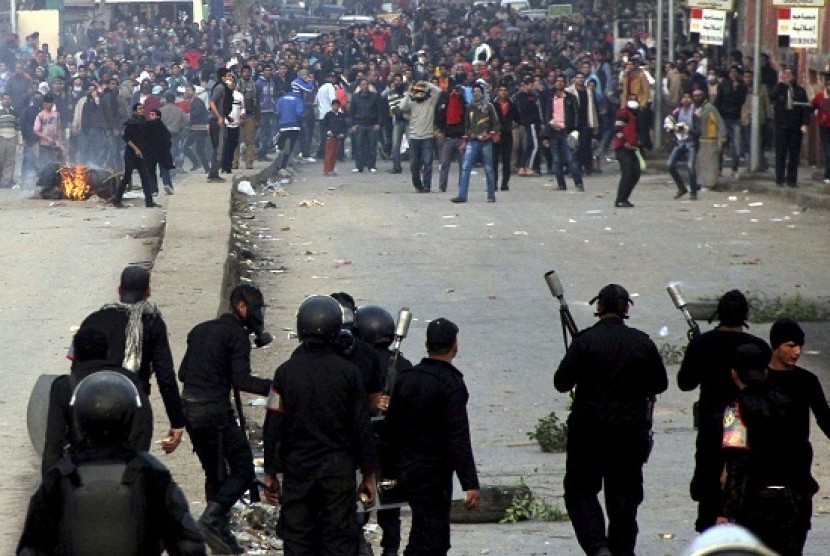REPUBLIKA.CO.ID, CAIRO - Egypt referred to trial deposed President Mohamed Mursi and 129 others, including members of Hamas and Hezbollah, on Saturday on murder and other charges related to a mass jail break during the 2011 uprising against Husni Mubarak.
These are the third set of charges brought against Mursi since he was ousted by the army in July, 3, amid street protests against his rule and they intensify the relentless repression of his Muslim Brotherhood group in the months that followed.
Earlier this week, the prosecutor ordered Mursi and 35 other Brotherhood leaders to stand trial in a separate case that charges them with plotting with foreigners including Hamas and Hezbollah to carry out a terrorist conspiracy against Egypt. Those charges, described as "risible" by the Brotherhood, could result in the death penalty for Mursi and his colleagues.
On Thursday, US Defense Secretary Chuck Hagel expressed concern about the charges against Mursi and other Brotherhood leaders in a phone call with army chief General Abdel Fattah al-Sisi, the man who ousted Egypt's first freely elected leader. The security forces have killed hundreds of Brotherhood supporters in the streets and arrested thousands more. The government accuses the group, previously Egypt's best-organised political and religious movement, of turning to violence and terrorism - charges the Brotherhood denies.
In a three-page statement, investigating judge Hassan al-Samir described the new case, relating to prison breaks during the anti-Mubarak revolt, as "the most dangerous crime of terrorism the country had witnessed". Samir said he had uncovered a "terrorist plan" hatched by the Brotherhood long ago and carried out with foreign players including Lebanon's Shi'ite militant Hezbollah movement and the Palestinian Islamist Hamas group which rules the Gaza Strip.
Mursi was one of those who escaped from prison after being rounded up with other Brotherhood leaders after the 18-day uprising that toppled Mubarak broke out on Jan. 25, 2011. In a telephone interview with Al Jazeera immediately after his escape, Mursi said the prison had been opened by "residents" and that he and other Brotherhood leaders with him had not fled.


